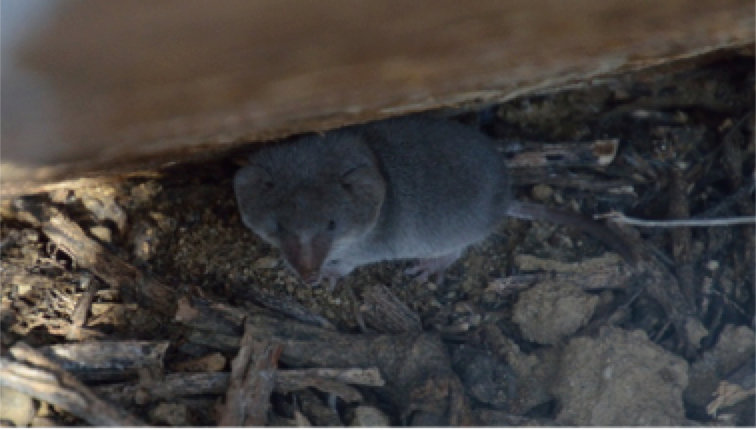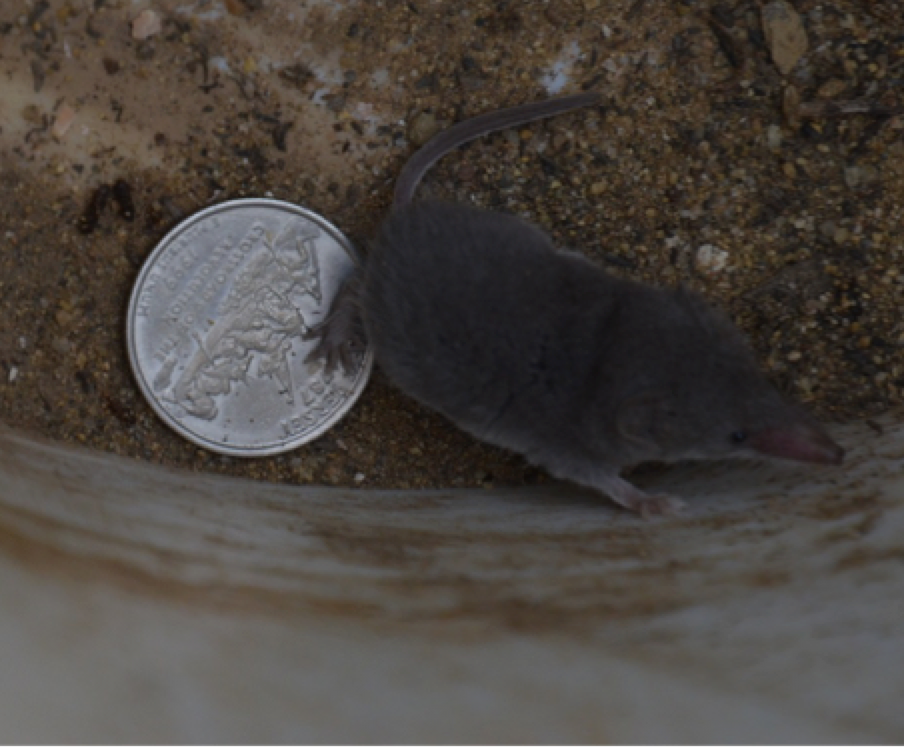 NPS Photo - A desert shrew found at Cabrillo National Monument. VIP Warren Tam
NPS Photo - A desert shrew found at Cabrillo National Monument. VIP Warren TamEcholocation. We know that bats and marine mammals like dolphins and whales use it. Did you know that there is another mammal that lives at Cabrillo that also echolocates? It’s one of our tiniest mammals – the desert shrew, or Crawford’s grey shrew (Notiosorex crawfordi).
As the name suggests, the desert shrew lives in deserts, specifically ranging in the southwest of the United States, and northern Mexico and all of Baja. Where they live alongside woodrats, they will inhabit the large dens built by the woodrats, taking up only about a golfball-sized space, so the woodrats don’t seem to mind.
 The adult desert shrew with a quarter for size comparison. VIP Warren Tam
The adult desert shrew with a quarter for size comparison. VIP Warren TamShrews are actually insectivores, not rodents – so they are not at all related to mice. Actually, shrews are more closely related to hedgehogs than they are mice! They eat a large variety of insects, including scorpions, and even lizards and young mice! These critters are extremely voracious eaters, needing to consume about 75% of their body weight every day as they have a high metabolism. You may have heard that some species of shrews are venomous. This particular species is not. They spend much of their time underground or hunting at night, and they have poor vision, so shrews have an excellent sense of smell, and like bats, can echolocate to get around and find prey.
This species is one of the smallest desert mammals, at birth being about the same size as a honeybee. A baby will reach adult size after about 4 weeks, when it will be about 2 inches long – which includes its tail!
How can an animal like this, or any animal for that matter, live in environments where there is no water? Stay tuned to find out about the cool adaptations that desert animals have to live in dry habitats!
